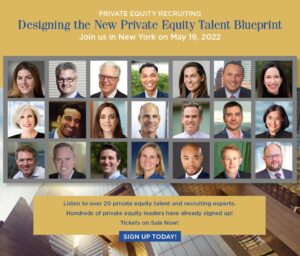Inside the High Demand for General Counsel Leaders

February 9, 2022 – The legal and compliance market is booming. The number of in-house lawyers and law firm partners with aspirations of becoming a general counsel is at an all-time high. Unfortunately, landing the position is a challenge. Every search has specific criteria established by the executive leadership team and board which must be met. Some of the criteria could include specific industry experience or business knowledge, a background in public company securities and governance, as well as expertise in regulatory, compliance, litigation, M&A, employment/labor law, intellectual property, government relations, leadership, career track record, law firm training, law school ranking, and the list goes on, according to Robert Barker, co-founder and managing partner of BarkerGilmore, which specializes in building corporate legal and compliance teams.
“Keep in mind cultural fit and soft skills which cannot be found on the resume are equally important,” he said. “And diversity can play a major factor in the CEO and board’s final decision. Most are using the general counsel position as a means of adding diversity to the executive leadership team,” he added. The demand for excellence is understandable as the general counsel plays such a critical role. One wrong answer or move during the interview process can lead to immediate disqualification. “Even after an offer is made, any red flag demonstrating a lack of judgment or ethics discovered during the background investigation will lead to a retraction,” said Mr. Barker.
Commercial lawyers, especially those with technology contracts experience, and corporate lawyers with securities, governance and M&A are in very high demand, noted John Gilmore, co-founder and managing partner of the firm. “Constantly changing regulations and safety concerns around COVID have put a lot of pressure on HR and companies are responding by adding in-house labor and employment lawyers,” he said. “Also, the demand continues for data privacy and security.”
Added Responsibilities
With the additional responsibilities being placed on the longstanding general counsel and the financial markets doing well, there have been more retirements than usual, said Mr. Gilmore. “The next generation is ready for the challenge and prepared to make a difference,” he said. “We maintain relationships with thousands of law department leaders who have shared their goals and interests and are on standby for the right opportunity.”
“This talent pool is well cared for and not actively seeking something new but will engage for the right opportunity,” Mr. Barker said. “Besides a keen ability of identifying and activating talent, our unique assessment process has been finely tuned for in-house counsel and compliance officers. The soft skills not found on the resume are equally important as the credentials, expertise and leadership abilities. Measuring EQ (emotional quotient) is critically important to an individual’s ability to serve as an advisor to the business. Someone with high EQ listens well to others, establishes trusted relationships, performs well under pressure, and humble to enjoy rolling-up-their-sleeves and doing the work.”
The assessment process is certainly working: 96 percent of the lawyers placed three years ago are still working for the client and almost all have taken on greater responsibility, according to BarkerGilmore research.
 The Ins & Outs of Recruiting During a Pandemic
The Ins & Outs of Recruiting During a Pandemic
In this brand new episode of ‘Talent Talks,’ Hunt Scanlon Media host, Rob Adams, is joined by John Gilmore, co-founder and managing partner and Brittney McDonough, managing director of BarkerGilmore. In this episode, Mr. Gilmore and Ms. McDonough share their experiences in recruiting during a pandemic, how diversity mandates are impacted the search for leaders, and what it takes to become a general counsel for a portfolio company vs. a major corporation. It makes for fascinating, insightful dialogue. Listen Now!
This past year, 43 – some 62 percent – of the newly appointed general counsels were either a woman and/or minority respectively. A total of 32, or 46 percent, were women and 21, or 30 percent, were minorities (11 minority male and 10 minority females). This is the second year in a row that men were more likely than female to be promoted from within, but women were more likely to be hired externally. The overall percentage of 62 percent is reflective of the pressure the board and CEOs are placing on diversity in the general counsel role.
It is not by chance that BarkerGilmore leads the industry in supporting clients’ diversity initiatives by delivering world class legal and compliance executives. “To help honor our commitment, we leverage access to an expansive network of top women and minority lawyers and compliance professionals, strengthened by the connections and affiliations of the leaders on our team and strategic partnerships,” said Mr. Gilmore. “We are humbled by the referrals shared with our recruiters when going out to search. The business and legal communities recognize our efforts and the impact being made placing women and minorities into in-house leadership roles and are quick to provide referrals to the most qualified talent. Our firm is diligent about provided a diverse slate of candidates where everyone meets the same bar for every search.”
Besides general counsel and chief compliance officer placements, BarkerGilmore places succession-worthy talent into specialized, high visibility roles such as corporate, employment, privacy, intellectual property, litigation, regulatory, etc. “The diverse talent we place quickly earns the trust of the business, executive leadership team, and board and find themselves taking on added responsibilities and moving upward in the law department,” Mr. Gilmore said. “Many of the attorneys we placed in these positions have progressed to general counsel and return to BarkerGilmore to make strategic hires.”

Legal Recruiting Professionals
Mr. Barker brings over three decades of executive search and international business experience to his clients. He has managed general counsel and chief compliance officer engagements for mid-sized to Fortune 500 companies, including consumer, energy, financial, healthcare and life sciences, industrial, non-profit, technology and private equity industries. Clients rely on Mr. Barker for advice and counseling both during and after the engagement.
Mr. Gilmore also has over 30 years of executive search experience. He has developed trusted relationships with general counsel and C-suite leaders across the country. With a profound institutional understanding of how in-house legal and compliance departments function most effectively, Mr. Gilmore has earned a reputation as one of the top executive search consultants for general counsel and chief compliance officer placements.
The two co-founders recently sat down with Hunt Scanlon Media to discuss the recruiting climate for general counsels and the thriving legal sector. Following are excerpts from that discussion.

Discuss the current state of the search industry? What has changed in recent years and what do you see ahead?
Barker: The answer is twofold – depending on the requirement for talent who are ready to relocate and sit at the table and the other open to long-term remote situations. We are getting the job done in both cases, but for those companies still looking for the traditional model of working in an office, it takes a bit more selling to identify talent prepared to make the move. The good news for the search industry is that companies are relying on recruiters more than ever to identify qualified talent. Also, the bar for hiring talent has been raised. More than a perfect resume with top credentials and precise experience, the soft skills are more critical than ever. Companies are being highly selective and putting candidates through more rounds of interviews than ever before.
Do you think COVID will permanently impact the industry in regard to travel and meeting clients face to face?
Gilmore: On a positive note, CEOs and CHROs seem more than satisfied meeting with our search consultants via video to select their firm for a given search. Our travel budget is negligible and the time for companies to select a firm is greatly reduced. I don’t know if it will stay this way, but it seems to be a win-win for everyone at this point.
Are there any special challenges of remote work for the legal sector?
Barker: Internal law departments have grown over the past several years to reduce cost involved with outside counsel but even more so to increase the overall satisfaction with the business. The relationships and partnerships established between a business-minded in-house lawyer and business leaders are priceless. General counsel feel relationships between lawyers and the business suffer by working remotely. Not sitting around the table and talking through strategies and solutions or having a conversation about one matter leading to something completely different is a handicap. Also, the best way for an in-house lawyer to learn the business is to work alongside the business. A lawyer at a medical device company talked about riding along with salespeople and attending surgical procedures to better understand the products and customer concerns. A lawyer at a logistics company rode with drivers to understand safety concerns and workload. A general counsel recently mentioned if she wanted lawyers to work outside of the company, she would simply hire outside counsel. While the desire is to have the lawyers in the office, it simply is not practical currently. Companies open to hiring remote talent have a competitive advantage with a larger talent pool to choose from and appear to be more attractive to those looking for new opportunities.

Gilmore: While the general counsel and CCO might currently be working remotely, relocation is almost always a requirement since CEOs want members of the ELT sitting around the table. General counsel and CCOs acknowledge the importance of the in-person relationships necessary to succeed.
Has the pandemic affected legal hiring . . . and how so?
Barker: The demand for in-house talent is at an all-time high, and the supply of actively looking, qualified talent (especially diverse talent) is low. It is the perfect storm for the search business.
How does the sector compare as far as diversity hiring of women, minorities etc?
Gilmore: Hiring women and minorities in legal and compliance roles is a priority across the board. It comes as no surprise that 69 percent of BarkerGilmore’s placements in 2021 were women and/or minorities. Identifying diverse talent who check all boxes for a given search is not an easy task, but our relationships established with affinity groups, reputation for treating people respectfully, and firmwide commitment to the advancement of others allow BarkerGilmore to outperform competitors. Delivering a diverse slate of talent where everyone meets the same bar is a priority for every search.
How does BarkerGilmore kick off searches with clients?
Barker: We are an executive search firm focused on delivering top talent. We view every search as an opportunity for clients to attract new talent who will make a sizable difference. The first step is to align with stakeholders to understand the ideal fit but also to gain perspective of what makes the opportunity attractive. Knowing key points which make an assignment attractive is the secret sauce. This allows our recruiters to turn prospects who are content in their current position into active candidates. Key points such as the strength of company leadership, business plans, growth opportunities, complexity of work and culture gain the attention of the very best.
Gilmore: After alignment with a client, an opportunity prospectus is prepared and used as a marketing tool. BarkerGilmore’s internal research team is incredible, keeping track of all lawyers at large law as well as regional and boutique law firms. Lawyers are followed throughout their careers as they move from law firm to in-house or from one in-house position to another. Education, core practice areas and leadership responsibilities are tracked, allowing researchers to quickly pinpoint prospective candidates for every search. Once electronic workbenches are prepared for a search, the recruiters are armed with the leads necessary to infiltrate the market.
Related: BarkerGilmore Taps Chief Compliance Officer for Sinclair Broadcast Group
Contributed by Scott A. Scanlon, Editor-in-Chief; Dale M. Zupsansky, Managing Editor; and Stephen Sawicki, Managing Editor – Hunt Scanlon Media












